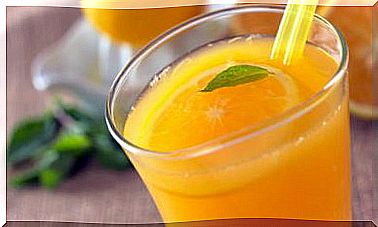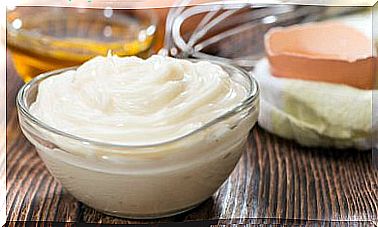Sea Salt: A Better Option For The Diet?
Sea salt is a product that we use to make certain types of recipes. However, it is becoming more popular every day, given that it has been attributed several beneficial health properties. Also, it is said to be healthier because it is “lower in sodium” than table salt. Is sea salt as good as they want us to see? Let’s see it next.
Regarding the use and consumption of salt, in general there are still many doubts. Even though the World Health Organization (WHO) has published its recommendations regarding its daily consumption and organizations, such as the Spanish Heart Foundation, warn about the importance of maintaining moderation in its consumption.
Would sea salt be a more recommended option than table salt? If I eat sea salt, will I be more protected against diseases? Could I lower my risk of hypertension, cardiovascular disease, fluid retention, and other issues by eating only sea salt?
Sea salt vs. table salt: is sea salt good?

Table salt or “common” salt goes through a process by which magnesium and other minerals are removed. In addition, the natural iodine is destroyed during its refining and potassium iodide is added at high levels. Dextrose is also added as a stabilizer and a bleaching agent to give it the color we know it with.
In contrast, sea salt or sea salt is rarely processed or involves minimal processing. It is obtained from the evaporation of sea water and, therefore, it retains certain levels of magnesium, potassium, calcium, iodine and other nutrients. Plus, it contains microscopic amounts of marine life.
Sea salt is less white in color and slightly more moist. It has a stronger flavor, but it is used less in cooking recipes.
For this reason, when comparing the characteristics of each type of salt, many people conclude that consuming sea salt would be much healthier than consuming table salt. However, the truth is that the consumption of sea salt is not a great advantage.
Consequences of a high sodium intake
Although sodium is an essential mineral, an excessive intake of it can lead to increased cardiovascular risk in prone people, according to a study published in Nutrients . This element is capable of promoting hypertension, so its intake should be limited.
However, there is another mineral in the diet, potassium, which has been shown to have the opposite effect. For this reason, a strategy for people with cardiovascular conditions may be to reduce the contribution of one mineral and increase that of the other.
To reduce sodium intake, keep in mind that it can be a good strategy to prioritize the presence of fresh foods in the diet. Industrial ultra-processed products usually have a greater amount of this nutrient, due to its ability to improve the organoleptic characteristics of the resulting products.
When seasoning culinary preparations, a moderate use of table salt or common salt is also recommended. It is preferable to use spices to enhance the flavor, such as pepper. In addition, these tend to have antioxidant capacities that are beneficial to health.

Sodium in athletes
The sodium intake in people who do sports responds to other types of patterns. This mineral is essential to guarantee electrolyte balance, which generates maintenance of physical performance.
In fact, reducing levels of it through sweating can lead to the development of hyponatremia that can be fatal. This is evidenced by a study published in the Journal of Intensive Care Medicine.
To avoid this situation, electrolyte drinks designed for athletes are usually used.
There are no significant variations for health
If you decide to consume sea salt, it may be because you like its taste or because it helps you prepare special dishes. Not because you think it will be more beneficial to health.
In case you have been diagnosed with hypertension or cardiovascular disease, remember to minimize your salt intake and follow your doctor’s instructions.
Contrary to popular belief, we shouldn’t completely exclude salt. On the other hand, we must moderate its consumption, in such a way that we do not use it unnecessarily in the different preparations that we are going to take.
Remember that if you have concerns about your diet, how to improve it or how to adopt a healthier lifestyle, it is best to consult your doctor.









